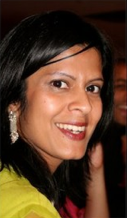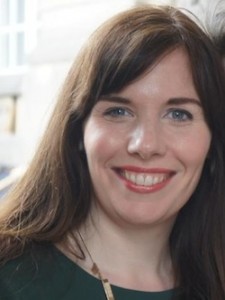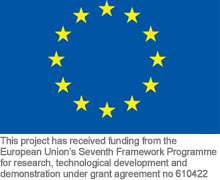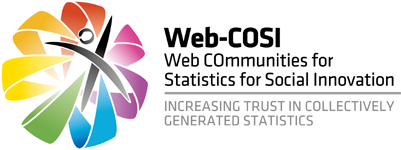The mission of the Organisation for Economic Co-operation and Development (OECD) is to promote policies that will improve the economic and social well-being of people around the world.
The OECD provides a forum in which governments can work together to share experiences and seek solutions to common problems. We work with governments to understand what drives economic, social and environmental change. We measure productivity and global flows of trade and investment. We analyse and compare data to predict future trends. We set international standards on a wide range of things, from agriculture and tax to the safety of chemicals.
We look, too, at issues that directly affect the lives of ordinary people, like how much they pay in taxes and social security, and how much leisure time they can take. We compare how different countries’ school systems are readying their young people for modern life, and how different countries’ pension systems will look after their citizens in old age.
Drawing on facts and real-life experience, we recommend policies designed to make the lives of ordinary people better. We work with business, through the Business and Industry Advisory Committee to the OECD, and with labour, through the Trade Union Advisory Committee. We have active contacts as well with other civil society organisations. The common thread of our work is a shared commitment to market economies backed by democratic institutions and focused on the wellbeing of all citizens. Along the way, we also set out to make life harder for the terrorists, tax dodgers, crooked businessmen and others whose actions undermine a fair and open society.
Web-COSI OECD Project Team:
Salema Gulbahar, Wikiprogress Coordinator
 Salema Gulbahar oversees the activities of the global progress and well-being networks (Child, Research, Europe, Latin America, and Africa) and community. She manages the Wikiprogress engagement tools that include online discussions, blogs, social media and the eBrief bulletin that goes to 31,500 subscribers. Prior to working at the OECD she produced the first “Women’s Enterprise Action Plan” for the London Development Agency; worked towards the “Education for All’ targets at UNESCO; developed business and fundraising plans for NGOs in India and started her career as a detached youth worker on the streets of London. Salema has a Master in Business Administration (specialised in innovation and entrepreneurship) from the Ecole Nationale des Ponts et Chaussée; a Degree in Geography and Politics from SOAS and Certificate in Youth Work from Goldsmiths.
Salema Gulbahar oversees the activities of the global progress and well-being networks (Child, Research, Europe, Latin America, and Africa) and community. She manages the Wikiprogress engagement tools that include online discussions, blogs, social media and the eBrief bulletin that goes to 31,500 subscribers. Prior to working at the OECD she produced the first “Women’s Enterprise Action Plan” for the London Development Agency; worked towards the “Education for All’ targets at UNESCO; developed business and fundraising plans for NGOs in India and started her career as a detached youth worker on the streets of London. Salema has a Master in Business Administration (specialised in innovation and entrepreneurship) from the Ecole Nationale des Ponts et Chaussée; a Degree in Geography and Politics from SOAS and Certificate in Youth Work from Goldsmiths.
Email: salema.gulbahar@oecd.org
Kate Scrivens, Wikiprogress Manager
 Kate Scrivens has 11 years’ experience at the OECD, working in the Public Affairs and Communications directorate as a campaign manager, and since 2008 in the Statistics Directorate as a researcher working on issues of progress and well-being. Kate has been closely involved in the OECD’s work supporting ‘beyond GDP’ statistics, first through the Global Project on Measuring the Progress of Societies, which she represented at conferences and workshops around the world, and in the last three years as a member of the Better Life Initiative research team, where she has written papers on societal progress indicators, vulnerability and resilience, the measurement of social capital, as well as contributing chapters to the flagship ‘How’s Life?’ publication. Kate has a Masters in International Political Economy from LSE and has a strong interest in the role of civil society in influencing national and international policy, which was the topic of her masters dissertation. Kate is responsible for managing the team working on Wikiprogress and the associated Web-COSI deliverables.
Kate Scrivens has 11 years’ experience at the OECD, working in the Public Affairs and Communications directorate as a campaign manager, and since 2008 in the Statistics Directorate as a researcher working on issues of progress and well-being. Kate has been closely involved in the OECD’s work supporting ‘beyond GDP’ statistics, first through the Global Project on Measuring the Progress of Societies, which she represented at conferences and workshops around the world, and in the last three years as a member of the Better Life Initiative research team, where she has written papers on societal progress indicators, vulnerability and resilience, the measurement of social capital, as well as contributing chapters to the flagship ‘How’s Life?’ publication. Kate has a Masters in International Political Economy from LSE and has a strong interest in the role of civil society in influencing national and international policy, which was the topic of her masters dissertation. Kate is responsible for managing the team working on Wikiprogress and the associated Web-COSI deliverables.
Email: Katherine.Scrivens@oecd.org

